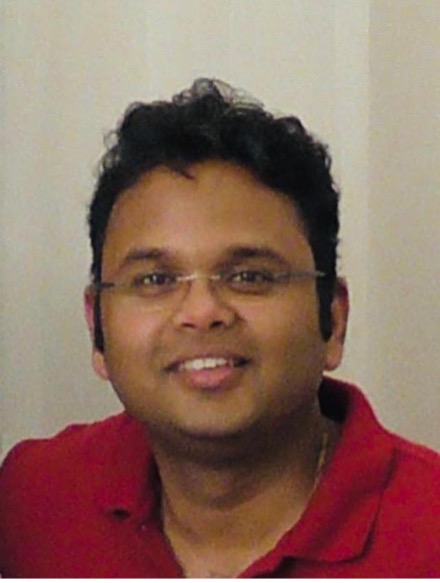Three lessons to be remembered from the second wave as we unlock in India: COVID-appropriate norms will be soon forgotten, leadership by city administrators can make a big difference, and the virus will never leave us until everyone is immune
The second COVID-19 wave in India was a significant learning experience about the Indian population’s behavior in response to the onslaught of the pandemic. Our casual attitude of giving up all COVID-appropriate norms that eventually culminated in the drastic second COVID wave could be described as akin to the observed behavior of the British during the world war at the time of the German bombing. During the world war, when London was preparing to be hit by massive German air attacks, it was expected that the damage caused by the German bombers would leave the people psychologically traumatized; but on the contrary, it left many people emboldened by the “remote misses”. The concept of “remote misses” and “near misses” as explained by Malcolm Gladwell stated that there were two kinds of reactions from the Londoners to the air bombings. The ones who directly witnessed the carnage brought on by the bombings, but were not killed, had “near misses”; these people with “near misses” were traumatized by the visible destruction. However, there were millions of people who had only heard the stories of airstrikes but never actually witnessed the bomb destruction directly; or in other words, had “remote misses”. The ones who had “remote misses” were the ones who felt emboldened and stronger. These people experienced a passive adaption, or in other words, they had “faced their fears” and come out unscathed. In a similar scenario, the pandemic has infected 20-30 million people in India, but most of the population has escaped either severe infection or infection. The number of people with “remote misses” still outnumber the ones with “near misses”. Probably this may be the reason why most of our population feels that they have conquered the virus. Several reports state that COVID-appropriate norms such as masking are also not being followed now, as the country unlocks. There is also an overwhelming record-breaking rush at different holiday spots, making social distancing an unlikely possibility in a country whose very existence is prided and defined by the social cohesiveness between its people. The possibility of isolation-induced fatigue making us long for companionship may also be one factor, but the theory of remote misses explains the country-wide phenomenon more aptly. In such circumstances, the government is best advised to make plans considering that COVID-appropriate norms will gain only limited acceptance, and a third wave is highly likely. The government will need to work on solutions that work on the population, assuming that luck and good fortune will not be on our side.
The local city administrators have been highly effective in controlling the situation in many parts of the country. The municipal commissioner of Mumbai is a standing example of how an aware and efficient administrator could control the infections and manage the resources effectively, even though Mumbai was the first to report the second wave. Several other IAS (Indian Administration Services) administrators in various cities such as Agra, Noida, Nandurbar, and Amravati worked day and night towards combating COVID-19. They went out of their way to procure oxygen and lifesaving medicines, often employing out-of-the-box techniques such as taking help from the air force for transport. These are well-studied examples of the hard commitment from our city administrators; their leadership is effective and should be encouraged because eventually, they can make a big difference in our fight against COVID-19. The city administrators have their ears on the ground and work with the local community, their beliefs, and the available resources. I wrote sometime back that a community-wide network such as that afforded by the China CDC (center for communicable disease) has a network of community centers with local workers that can provide valuable updates on the prevailing notions and beliefs, which in turn helps in drafting federal policies. Hence, community-wide and city administrators need to be trusted with more responsibilities; and their reading of the ground situation should be given more weightage.
Lastly, we need to be reminded again that the coronavirus has a considerable mutation capacity. A case in point is the delta variant and the more recent delta plus variant reported from various parts of the country. The virus adapts and attacks again, each time unexpectedly different from earlier. Furthermore, the ICMR (Indian council for medical research) research has shown that most of our population is still vulnerable and bereft of anti-coronavirus antibodies. Hence, there are only two ways the pandemic may meet its end: either the virus stops mutating, or the population achieves immunity through repeated infections or the vaccine. As we unlock progressively, we should remember and humbly accept that we will need to co-exist with the virus for an uncertain time wherein repeated increases in infections and repeated lockdowns may end up disrupting our social lives and our economy.
But it may help to remember Haruki Murakami’s words:
“And once the storm is over, you won’t remember how you made it through, how you managed to survive. You won’t even be sure, whether the storm is really over. But one thing is certain. When you come out of the storm, you won’t be the same person who walked in. That’s what this storm’s all about.”

Dr Dipit Sahu
Dr Dipit Sahu is a Consultant Shoulder Surgeon in Sir H.N. Reliance foundation hospital, Mumbai and Jupiter Hospital Thane. Earlier he has worked, and fellowship trained in 4 different medical systems of the world: USA, France, South Korea and India.
Declaration of interests
I have read and understood the BMJ Group policy on declaration of interests and declare the following interests: none.